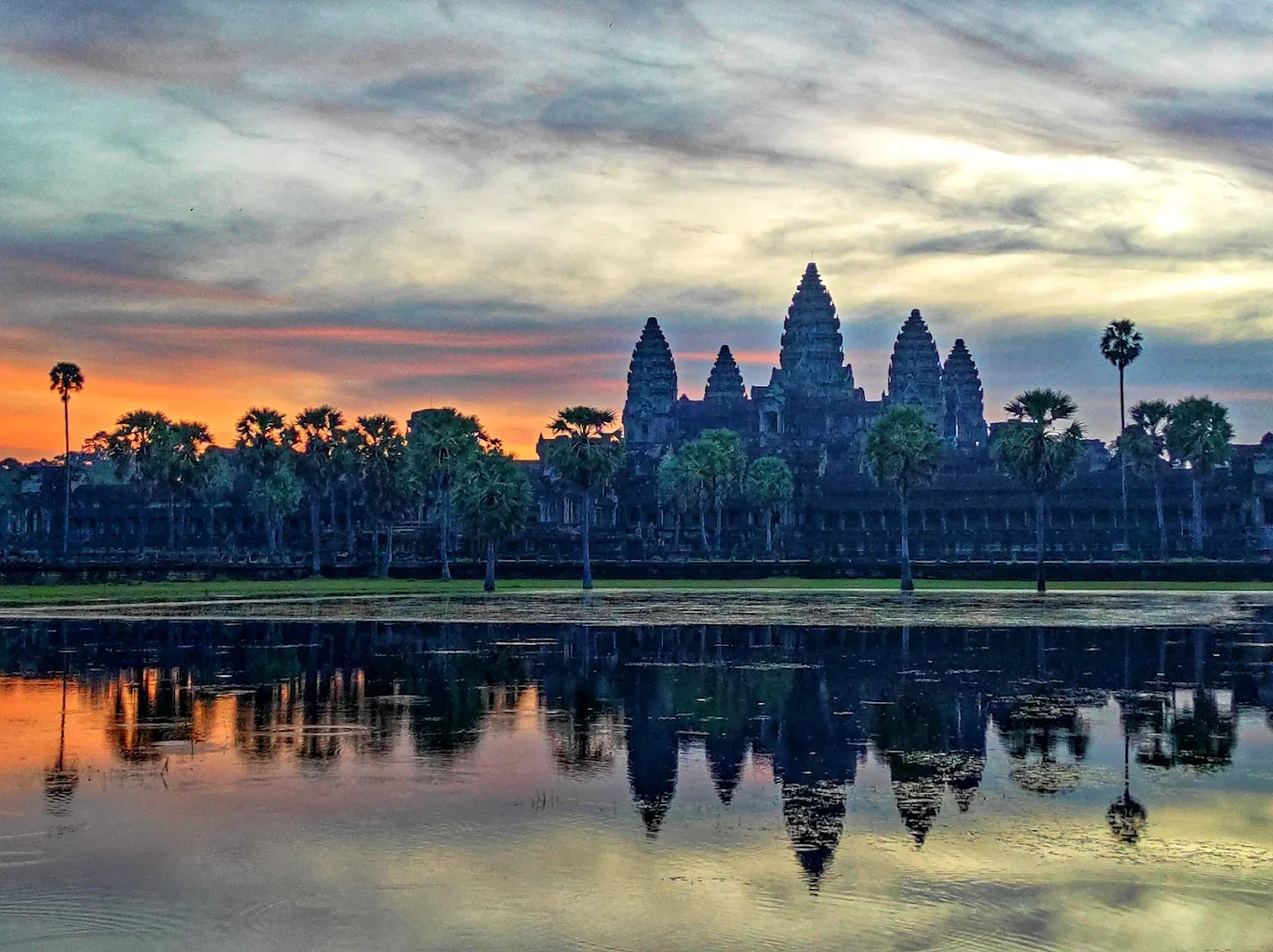Cambodian Tourism: Top Destinations in the Kingdom of Wonder
Introduction: Reasons for Visiting Cambodia
Cambodia, rich in storied past, religious heritage, and natural splendor, welcomes millions of tourists each year who are eager to find out about its incredible antiquities as well as its rich heritage. From the mythological Angkor Wat to tropical islands like Koh Rong, Cambodia is one incredibly rewarding destination for any type of tourist.
Ranging from centuries-old temples to receiving one single friendly smile from the street vendor in Phnom Penh, Cambodia tourism provides true experiences which you won’t forget anytime soon. Below is the ultimate Cambodia tourist attractions guide.
Angkor Wat and the Angkor Temples
The crown jewel of Cambodia tourism is undoubtedly Angkor Wat, the largest religious monument in the world. A temple complex in Siem Reap, it was the hub of the 12th-century Khmer Empire and is presently a UNESCO World Heritage Site.
Some must-sees
Angkor Wat: A majestic expression of classical Khmer architecture and national pride.
Bayon Temple: Famous for having over 200 stone faces.
Ta Prohm: Also called the “Tomb Raider temple” as there are trees growing out of the structures.
Tip: Buy the 3-day Angkor Pass to explore the entire complex without time constraints. A bucket-list experience is to view the sunrise over Angkor Wat.
Phnom Penh: Turbulent History in the Capital
Phnom Penh, Cambodia’s vibrant capital, is one-of-a-kind when it comes to mixing tradition and contemporaneity. That is where one is able to experience Cambodia’s distant past as well as its gruesome 20th-century past.
Destination to Visit:
Royal Palace & Silver Pagoda: Central spiritual and cultural hub of the city.
Tuol Sleng Genocide Museum and Killing Fields of Choeung Ek: Ominous memorials to the victims under the regime of the Khmer Rouge.
Riverside Promenade: Vibrant area with cafes, stores, and sunset views.
Fun Fact: Phnom Penh was referred to as the “Pearl of Asia” in the period under French colonial rule.
Kampot and Kep: Relaxed Riverbank
For more laid-back days out, head south to the riverside colonial town of Kampot, complete with colonial buildings, pepper farms, and up-and-coming cuisine.
Nearby, Kep is famous for having a crab market and laid-back beach life.
Things to Do
Take an excursion by boat along the Kampot River.
Visit a pepper farm—Kampot pepper is globally famous.
Visit Bokor National Park to experience the foggy mountains and abandoned French hill resorts.
Try the Kep crab with Kampot pepper sauce—a specialty of the region.
Koh Rong and Koh Rong Samloem: Island Paradise
Holidays in the tropics don’t get any better than Koh Rong and off-the-radar sibling island Koh Rong Samloem, two of Cambodia’s best kept secrets.
Koh Rong: A backpacker’s dream destination complete with white-sand beaches and nightlife.
Quieter and more serene, it suits couples and digital detoxing well.
Activities: Snorkeling and Scuba Diving
Kayaking and paddleboarding.
Nocturnal viewing of bioluminescent plank
Getting there: A speedy boat ride from Sihanoukville.
Battambang: Culture, Arts, and the Popular Bamboo Train
Located in western Cambodia, Battambang is a charming town well noted for having well-preserved colonial buildings, a thriving arts scene, and village life.
Top Sights: The Bamboo train: A scenic train ride through the countryside.
Phnom Sampeau: A temple-filled hill and the eerie Killing Caves.
Bat Cave: Watch as millions of bats emerge from a limestone cave at sunset.
The surrounding cafes and art galleries
Less touristy than Siem Reap and Phnom Penh, Battambang is perfect for true experiential contact with the inhabitants.
Mondulkiri: Ecotourism and Elephant Sanctuaries
Nature lovers can enjoy rolling hills, waterfalls, and responsible elephant experiences in Mondulkiri. This thinly populated area in the eastern part of Cambodia has a cooler climate and an abundance of wildlife.
Activities to Do
Visit the Elephant Valley Project, where elephants are not ridden, and where they are not exploited.
Jungle trekking with Bunong guides.
Visit Bou Sra Waterfall, one of Cambodia’s largest waterfalls.
The province is inhabited by numerous original cultures, primarily the Bunong people.
Preah Vihear and Banteay Chhmar: Off-the-Beaten-Path Temples
Although Angkor Wat receives the tourist hordes, Preah Vihear Temple and Banteay Chhmar offer equally stunning ruins without the masses.
Preah Vihear: Perched atop the cliff face overlooking Thailand, this temple is breathtaking spiritually as well as visually.
Banteay Chhmar: A temple complex far out in the northwestern jungles, to which few people ever get to.
If you wish to spend time seeing Cambodia’s ancient Khmer architecture in solitude, these are the ideal destinations.
Tips for Traveling in Cambodia
Best Time to Visit: November through March (dry and cool period)
Currency: US Dollar and the Cambodian Riel (KHR) are generally accepted.
Visa: Most tourists can obtain a visa on arrival or an e-visa online
Language: The national language is Khmer, but English is spoken in tourist areas.
Transport: Tuk-tuks, motorbikes, and buses are ubiquitous. Domestic flights serve major cities.
Etiquette: Dress conservatively when visiting temples, remove your shoes upon entering homes and places of worship, and always ask permission before photographing people.
The final thoughts: Cambodia, the spirit Cambodia is more than just Angkor Wat. It is a land in which the past and present-day resilience meet, in which nature remains unscathed, and in which smiles etched on people’s faces are remembered for many days to come. From discovering awe-inspiring archaeological sites to soaking up the sun on serene tropical beaches or immersing oneself in the rich, complex history, Cambodian tourism offers an experience rich in substance, wonder, and authenticity. Pack bags and get ready for an experience of a lifetime in the Kingdom of Wonder.

